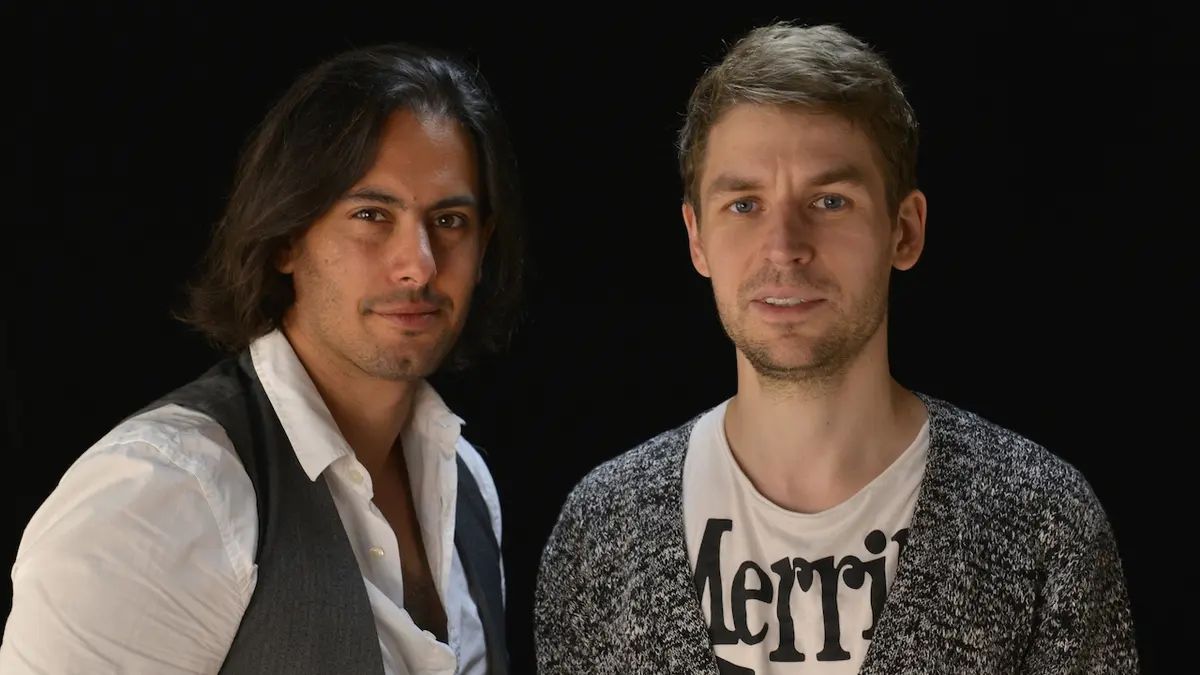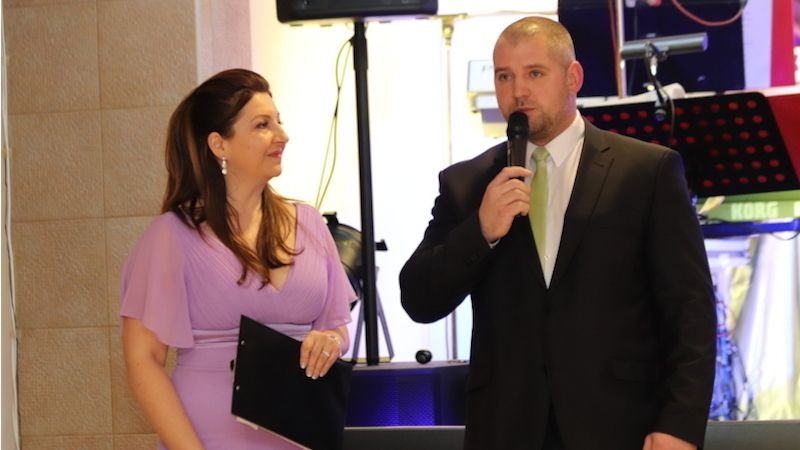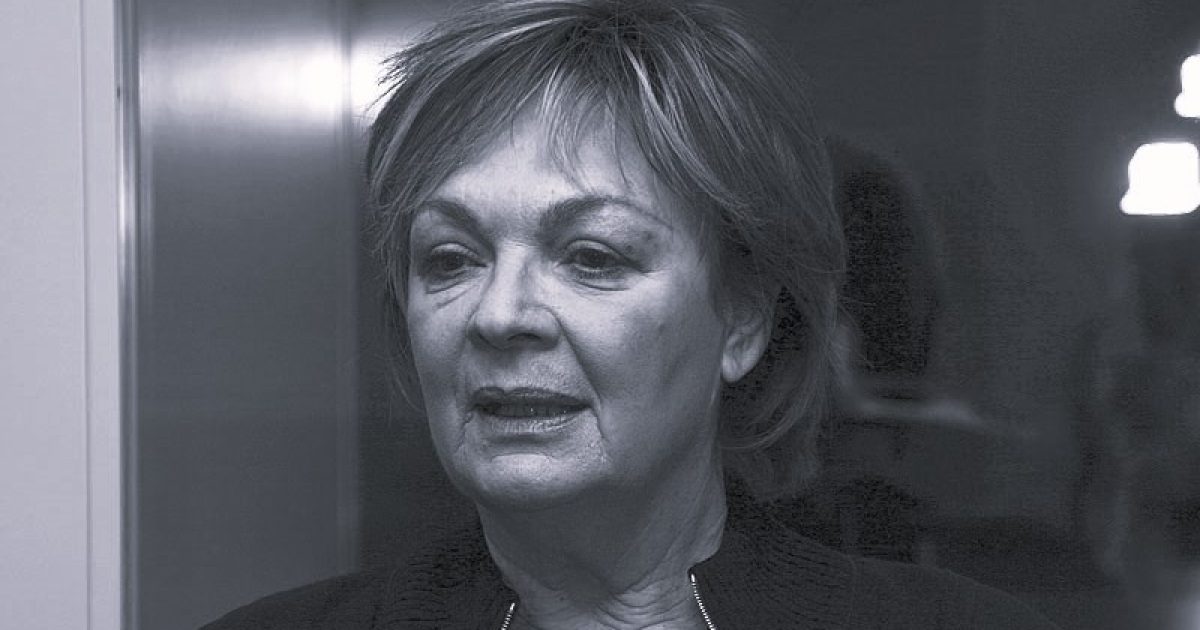Is Storm your choice?
Martin Kukučka: He and she don’t. When we performed the ballet The Sorcerer’s Apprentice / Krabat at the National Theater in Prague with choreographer Jan Kodet in 2013, Professor Martin Hilský told us after its premiere: You have to make a Hurricane. We remembered this when we were looking for a title for this year’s Shakespeare Festival. At the same time, we are looking for a drama where we will apply the actors we worked well with in Midsummer Night’s Dream. And it suits Storm best.
The fact that David Pracha, who already has many Shakespearean characters, never played Prospera, but is at the right age, also plays a role. It all comes together when considering this year’s premiere.
What role does the thematic relationship between Dream and Storm play in this?
Crazy: We’ve relied on the Dream and Storm parallels from the start. And with acting, but also thematic. There are a number of small excerpts on The Storm that viewers who have seen our Dream production will appreciate.
What makes Storm special to you?
Lukáš Trpišovsk: Mainly because it’s an unreadable game, but it has to be experienced. When we just read the text with the actors, it seemed to a lot of people nothing to play with. But when we started to try certain situations, we found that this is not a sharp storyline, but the development of relationships between characters. Reading the text is just the tip of the iceberg that appeared in front of us during practice, as we discovered the inner strength of this game. Hurricane doesn’t need updating, it contains a number of topics that are still up to date.
The fact that a ship sinks and spit people into a whole new life with which they have no experience and do not know if they will come back to life from the island cannot but remind us of the situation we have been in for more than a year. . And I’m not talking about the level of politics and politics, which are also familiar to us in many ways.
Crazy: In his last major game, Shakespeare recapitulates previous games, including motifs from Macbeth, King Lear, Hamlet, Richard III, Romeo and Juliet, and many other games. There are also lots of very entertaining and dramatic subtext links. But you get into it gradually and from within. At first you see Sejahtera and the lovers Miranda and Ferdinand.
Who is Prospero to you?
Tripišovsk: It is important for us to find Prosper with respect to a particular cast, what themes the actor, in this case David Prachař, will bring to the character. Together, we come to the conclusion that the person who initially imagined his idea of revenge, but is gradually surprised that things are going differently than he expected. And this will lead to forgiveness, which he may not have expected at first.
I can imagine a rational Prosper, but to us he was much more impulsive, despite all his education and learning.
Crazy: The Key to Prosperity is the line spoken by Ariel’s spirit about the shipwrecked people on the island: I will regret them, become human. And at this moment, Prosper’s desire for revenge was being severed.
Another important fact of his revenge is Prosper’s daughter, Miranda. Maybe if she was on the island without him, she would be better off and maybe she would forget revenge. But he had to do something with his daughter, who grew up for him, and he didn’t know much about it. This left him confused and human at the same time. These two things came together at times and motivated Prosper’s decision. For us, the question is whether Prospero sailed back from the island to his homeland at all.
Tripišovsk: And there are two other very interesting moments for us and David Prachař. The first is the part where the island is compared to our life surrounded by sleep, namely death, and everything changes from the real plane to the metaphorical plane.
It could all happen in Prosper’s head, in his imagination. And there’s the theme of aging, the theme of a man feeling that his end is near, or maybe just a climax, and he has to deal with the fate of his daughter and there’s the question of what will happen to her.
It’s something metaphysical that adds another dimension to the play and shows that Shakespeare was an important poet who could turn his views into reality in a different and deeper direction.
Storms, like Midsummer Night’s Dream, are filled with magic. And this is a location close to you.
Crazy: Yes, we are known for putting magic into Chekhov. But seriously, we enjoy creating magical worlds, so Storm is probably the right title for us. Ghosts and magic are intertwined throughout the play, but are also linked to the application of the “theater in the theater” principle, which permeates the production, while the acclaimed play does not detract from the magic of Shakespeare’s play. After all, it’s hard to define a genre, from magic to comedy.
Here, a pair of drunks Stefano and Trinkulo bring into the text. Do you think of them as characters written to entertain an audience?
Tripišovsk: They certainly bring humor, the world of the common man and relief from more serious situations, but at the same time they reflect the theme of Prosper and his brother Antonio, usurping the Duke of Milan, the theme of farewell. of two people. Stefano and Trinkulo came to the island as inseparable friends, but when Caliban attacked them, they divided them. The idea of dominating the island puts them against each other. But at the same time, they are the gratefully written comedic characters that Josef Polášek and Marek Daniel would surely portray.
The mirroring principle is interwoven in Storm from Midsummer Night’s Dream – Oberon and Puk spill over to Prosper and Ariel and craftsman to Trinkul and Stefan. Prospero, on the one hand, is an aging Oberon, just as Ariel is a more tired Puck. Therefore, it is important to have this pair in the same way, so that the actors have something to build and develop. After all, in The Storm, as in most of Shakespeare’s plays, there are no small roles, every character has its rightful place and a good actor has to play it.
Crazy: We thought about it during the cast and we are very happy that even good actors like Jiří Zapletal, Ondřej Malý, Petr Jeništa or Jan Bidlas will appear in courtier characters, who can create situations, suspense, capture the meaning of certain characters.

“Unapologetic social media guru. General reader. Incurable pop culture specialist.”







